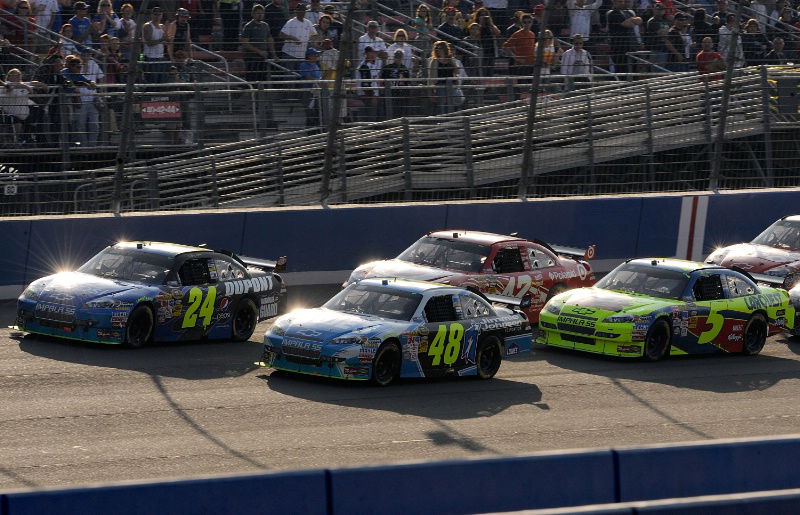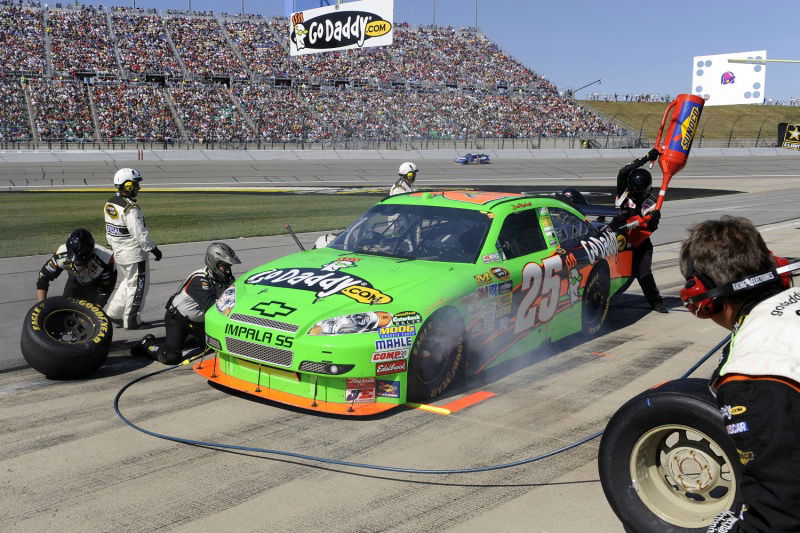2010 Cup races get earlier, uniform start times
NASCAR and its television partners announced this week that 20 Sprint Cup races next year will move to a 1.15 pm ET start, including the Daytona 500, making 21 races scheduled in that time slot. Overall, 28 of the events will start earlier than they did in 2009.
NASCAR and its partners are hoping the move will appeal to its core fans and improve television ratings.

NASCAR and its television partners announced this week that 20 Sprint Cup races next year will move to a 1.15 pm ET start, including the Daytona 500, making 21 races scheduled in that time slot. Overall, 28 of the events will start earlier than they did in 2009.
NASCAR and its partners are hoping the move will appeal to its core fans and improve television ratings.
"We started to tamper with something that we shouldn't have," Fox Sports chairman David Hill conceded. "I'll put my hand up and say, 'Guilty.' What we tried to do was by moving the races later, you get into a television terminology called HUTS - houses using televisions.
"So obviously the later you move it, the more HUTS there are (by including the West Coast), the greater chance you have at ratings. However, what we found, in our research and NASCAR's research, is the great thing about this sport is its wonderful, wonderful traditions.
"So we realised that we were artificially trying to goose the figures, that it wasn't doing us any good whatsoever with that core fan that created this sport."
The race start times for Sprint Cup races in 2010 in the Eastern and Central time zones will begin at 1.15 pm ET, while West Coast events will begin at 3.15 pm ET, and night races will begin at 7.45 pm ET, with the lone exception being the Coca-Cola 600, which will have a 5.45 pm start time.
This year, NASCAR has Sprint Cup races starting at 11 different times.
"Our core fans want to begin watching NASCAR a little bit earlier in the afternoon," NASCAR chairman Brian France added. "Sometimes that is counterintuitive to traditional programming for sports.
"But nonetheless, looking at the last couple of years, we've been going later in the broadcast window, and we haven't been as consistent as we can. ...Everybody working together to get this right across so many months of programming, across so many different networks was not simple. Everybody wants to drive ratings, drive interest."
Through the race last month at Dover, Sprint Cup races have averaged a 4.2 U.S. rating and 6.739 million viewers for non-rainouts. Figures are down 4.5 percent in ratings and 6.4 percent in viewership from last year's 4.4 rating and 7.199 million viewers (excluding rainouts).
"This is one thing that we could coalesce around, that we know fans like," continued ESPN executive vice president John Skipper. "We believe it will help us.
"These are all gut calls at the end of the day. We listen to fans; we talk about what we all think is best. Ultimately it's NASCAR's call, and we hope that it makes the ratings go up."

